Why Is Everyone So Riled Up About Singapore Label, Ivory Lane?
The real reason is totally not what you would expect. By Michelle Varinata


Photo: WWF
wwf
Ivory has long been heralded as a luxury commodity. This highly controversial material, which comes from elephant tusks, is highly treasured by by Queen Elizabeth II, who reportedly owns 1,200 items that were passed down to her family for generations. With a fraction of the Queen's collection, the British Museum just added 500 ivory-based artworks to their collection in June 2018.
Despite its status as a coveted treasure for royalty and museum curators, the collection of ivory earned scorn from Prince William, who requested that all ivory antiques be destroyed. Echoing the Duke of Cambridge's sentiments, Lupita Nyong'o and David Beckham also endorse the ban on ivory trade.
With heavy support from Hong Kong and China, both governments banned the sales of ivory. Before both Asian countries banned ivory, Kenya torched its largest ivory collection in front of VIPs from Nicole Kidman to Leonardo Di Caprio. Even Li Bing Bing traveled to Kenya to visit Samburu National Reserve, where elephants can roam freely without the fear of being poached.
In a larger bid to make elephant crisis become the go-to cause within the fashion industry, Knot On My Planet launched a campaign and a limited edition elephant-shaped handbag with Loewe, which was made by women who live near the Samburu National Reserve.
Related article: Bazaar Loves: Fashion Find Of The Day 2018
Regardless of the popularity of abolishing ivory forever, a recently launched label in Singapore—Ivory Lane—went for a completely different method. Rather than manufacturing faux ivory, the online retailer purported to use vintage ivory for all of its products.
Given that selling and importing ivory was banned islandwide in 1990, the World Wildlife Fund (WWF) counters that there are no distinguishing features between pre-1990 and present-day ivory.
With so much controversy generating around the use of real ivory on Ivory Lane's Facebook and Instagram campaigns, the "retailer" earned a lot of flak from angry netizens.
Related article: 7 Local Shoe Brands That Are Making Waves Internationally
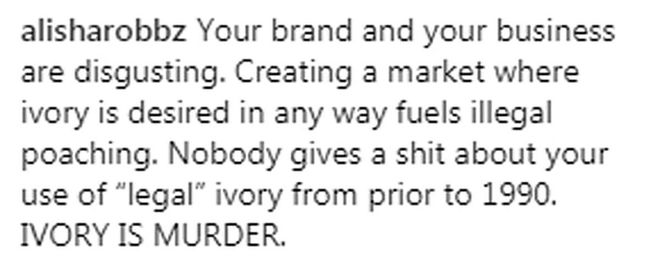
Photo: Instagram
wwf
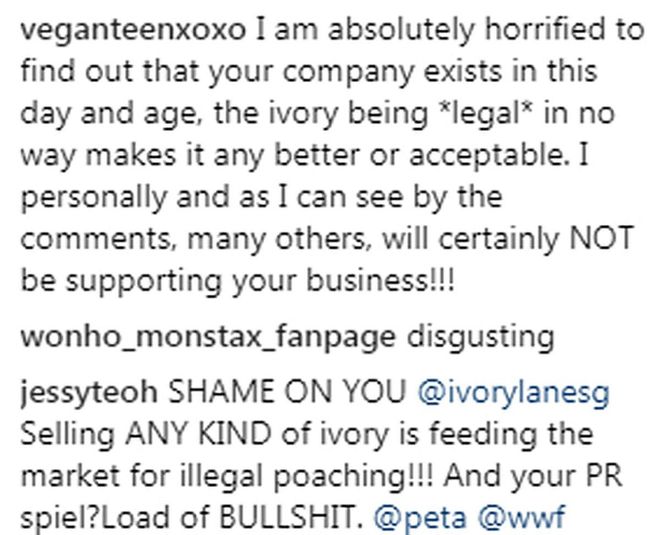
Photo: Instagram
wwf
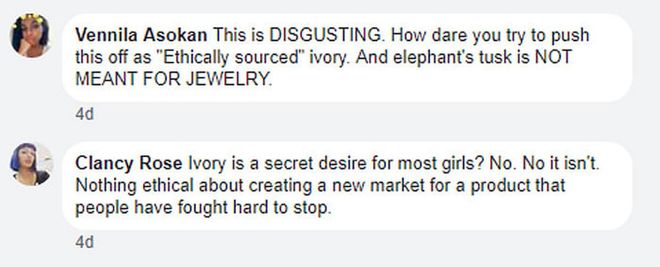
Photo: Facebook
wwf
Ironically, Ivory Lane was actually set up by WWF-Singapore to raise awareness for ivory poaching in Singapore as the country is the go-to destination for ivory smugglers to re-ship the tusks to Vietnam. By using the campaign as a litmus test, the brouhaha surrounding it revealed that at least 65,000 people don't tolerate the use of ivory.
Elaine Tan, the CEO of WWF-Sinapore, said in a statement, "The overwhelming and strong response by people in Singapore towards Ivory Lane has made it very clear that people in Singapore have a zero tolerance toward illegal wildlife trade."
Since Ivory Lane was revealed to be a PR campaign by WWF-Singapore, it has drawn mixed responses.
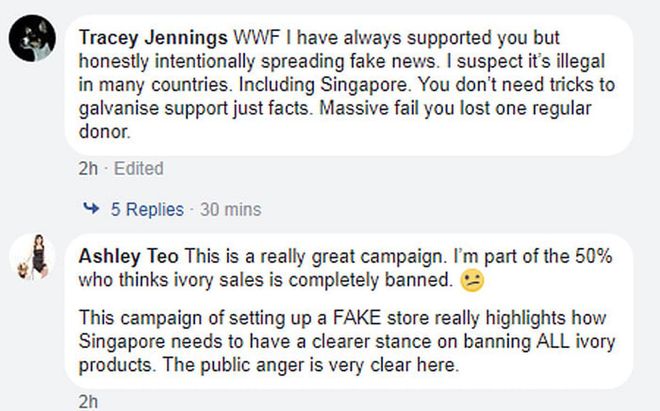
Photo: Facebook
wwf

Photo: Facebook
wwf

Photo: Facebook
wwf
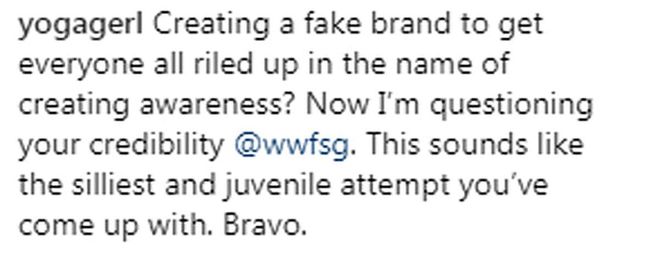
Photo: Instagram
wwf
Thanks to its heavy-handed controversy and extremely convincing campaign, WWF hopes that there will be a stronger response to enforce a full ban on ivory sale in Sinagpore. While a countrywide ban has yet to be made, the wildlife conservation organisation launched Virtual Ranger, a hotline that can encourage participants to send anonymous tips to the government on ivory smugglers. Hopefully, more lives of elephants can be saved before they go fully extinct.
Related article: 18 Fashion Cult Favourite Brands That Are Sustainable